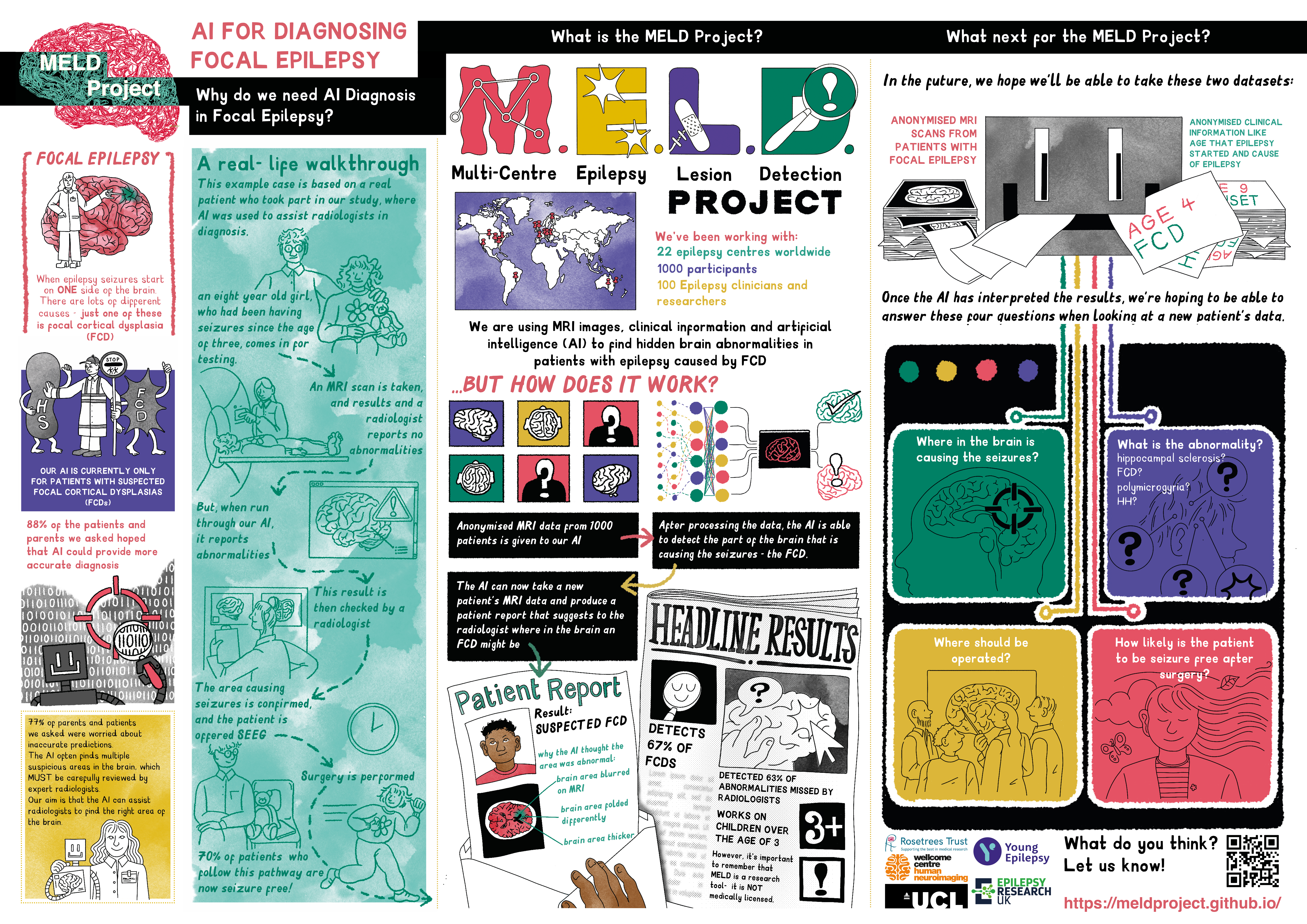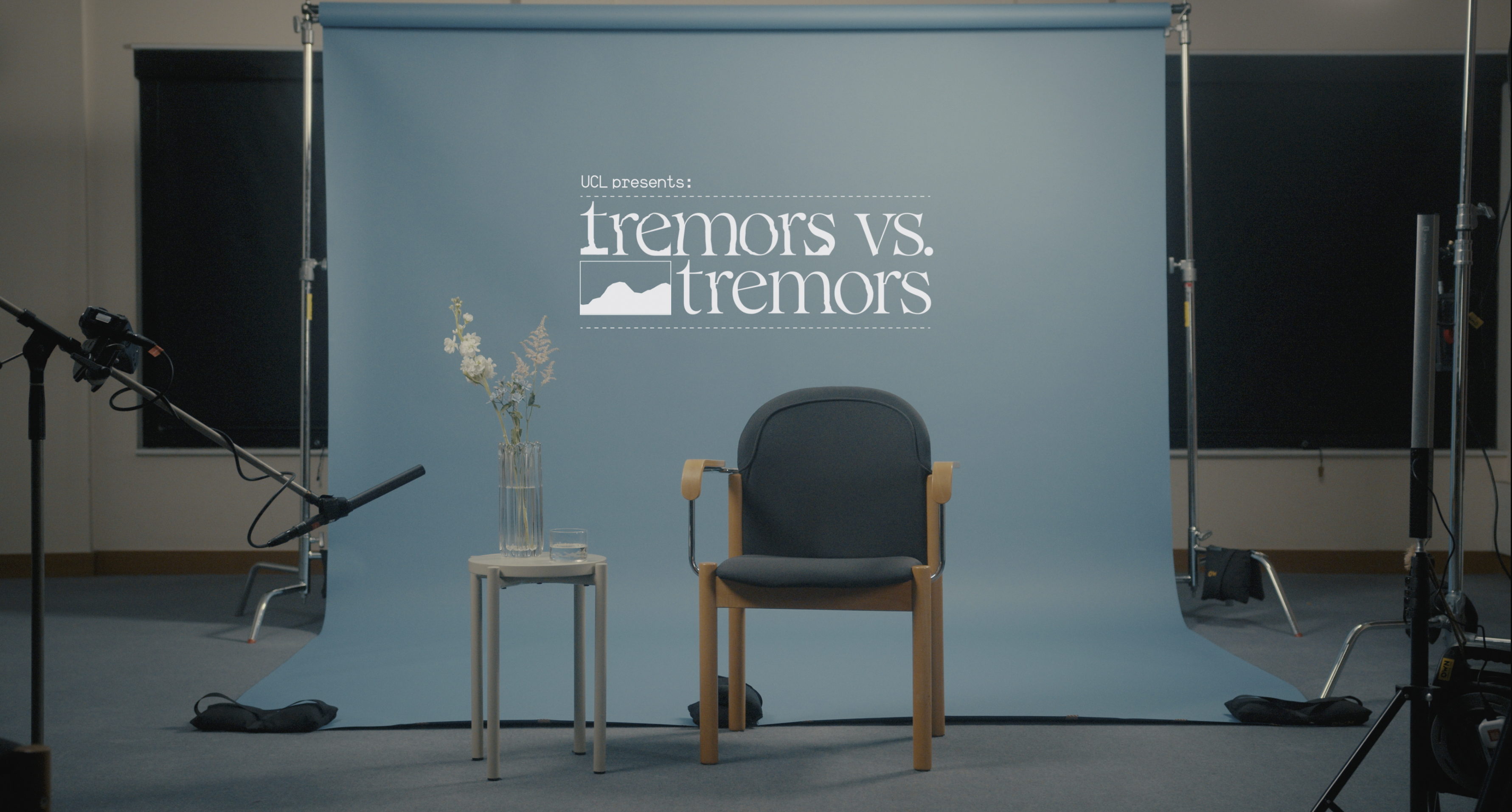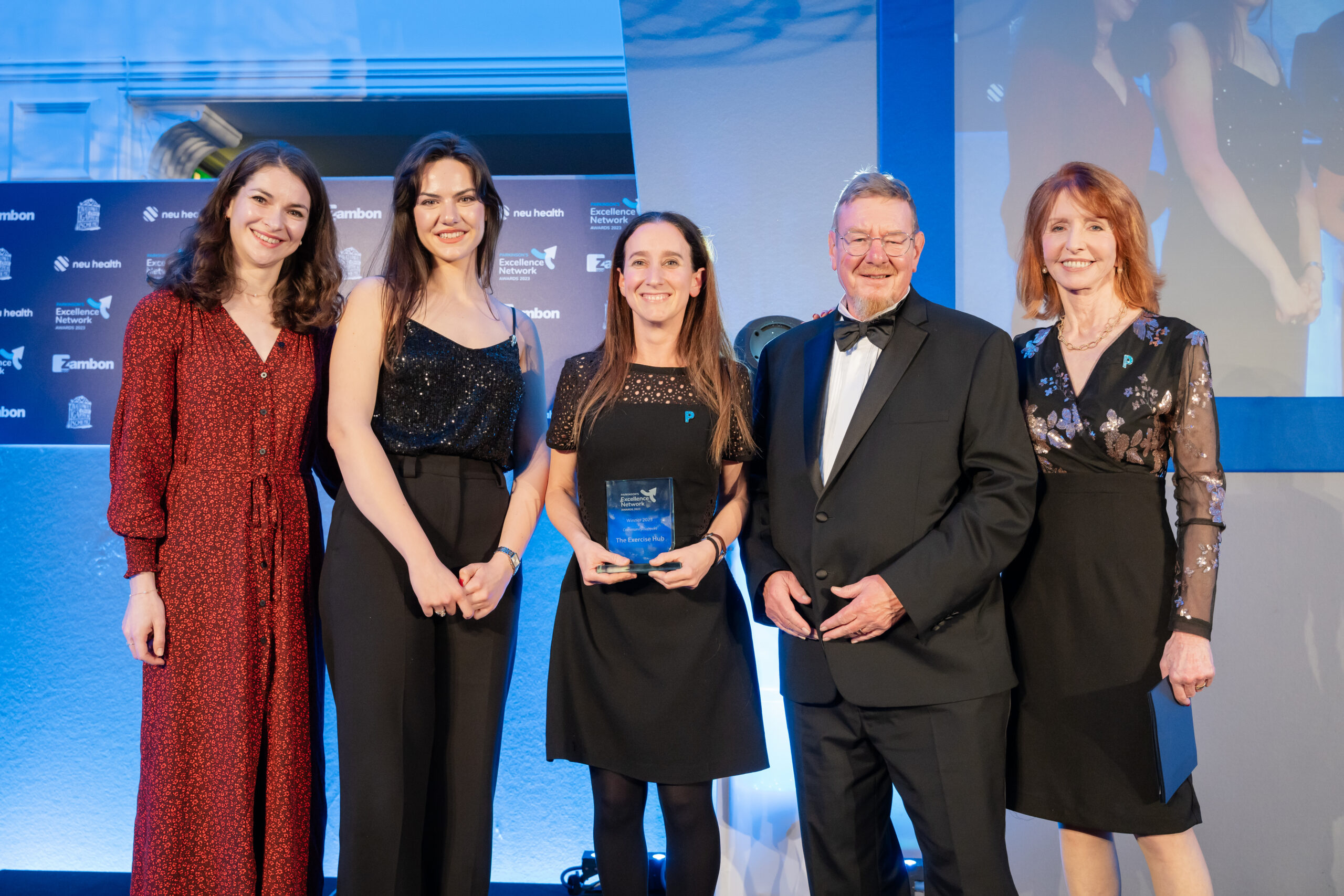Artificial Intelligence for Diagnosing Focal Epilepsy: A collaborative project to co-develop an information sheet with patients and their families
State-of-the-art artificial intelligence (AI) is currently being used by researchers in order to better understand, diagnose, treat and predict outcomes in people living with epilepsy.
At UCL, Dr Konrad Wagstyl and Dr Sophie Adler are two researchers working in this area. They co-lead the MELD project, an international collaboration between epilepsy hospitals worldwide, which creates AI tools to assist in the identification of epilepsy causing abnormalities on MRI scans. The MELD team use anonymised data from medical notes and MRI scans to train AI models.
Using novel technologies and patient data in this way begs many questions including:
- How do patients and their families feel about this type of research?
- How do they feel about their / their child’s medical data being used?
- What is important for patients and their families to know about these types of technologies?
In December 2022 – January 2023, Dr Wagstyl and Dr Adler explored these questions in a Public Engagement Project funded by UCL’s Department of Imaging Neuroscience.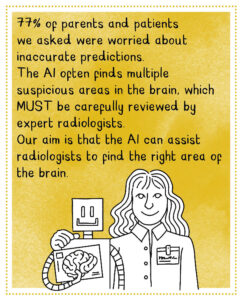 In collaboration with Dr Jonny O’Muircheartaigh (a neuroscientist at KCL) and epilepsy charities (Epilepsy Research UK and Young Epilepsy), the team set out to find out how patients and their families feel about this type of research and to work with them to co-create an information sheet about the MELD Project.
In collaboration with Dr Jonny O’Muircheartaigh (a neuroscientist at KCL) and epilepsy charities (Epilepsy Research UK and Young Epilepsy), the team set out to find out how patients and their families feel about this type of research and to work with them to co-create an information sheet about the MELD Project.
Initially the team began by surveying 54 patients or parents/guardians of children with drug-resistant epilepsy about Big Data and AI in epilepsy research. This provided incredibly useful information about the hopes and fears that patients and their families have around these topics.
Using these vital insights, the team then ran a focus group at Young Epilepsy with parents of children with complex epilepsy, to find out what was important for them to know about these types of technologies if they were to be used in their child’s care. Within the session, the group worked collaboratively to develop a template information sheet, taking into account the needs of young people with epilepsy and their parents.
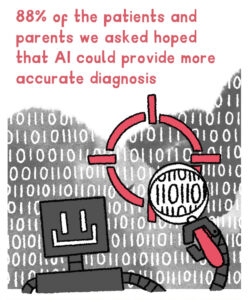 “Hearing the stories and journeys of the different families and their hopes for our research was completely inspiring and really motivates our work moving forward.” Dr Konrad Wagstyl
“Hearing the stories and journeys of the different families and their hopes for our research was completely inspiring and really motivates our work moving forward.” Dr Konrad Wagstyl
Following on from the focus group, Dr Wagstyl and Dr Adler then worked with a fantastic illustrator, Bridget Meyne, to create a visually appealing infographic. Before being finalized, this was circulated to parents of children with epilepsy, researchers, clinicians and epilepsy charities. They all provided invaluable feedback and further suggestions, which were then embedded into the final information sheet.
“The public engagement team at WCHN provided a huge amount of support and feedback helping transform our initial ideas into an informative questionnaire and an interactive and engaging workshop. This enabled us to co-create a visually-appealing patient, charity, scientist and clinician informed information leaflet, This process has taught us a huge amount about how to work interactively with different epilepsy stakeholders.” Dr Sophie Adler
You can read more information about the MELD project here: https://meldproject.github.io//.
The final information sheet, AI for Diagnosing Focal Epilepsy, can be viewed below:
